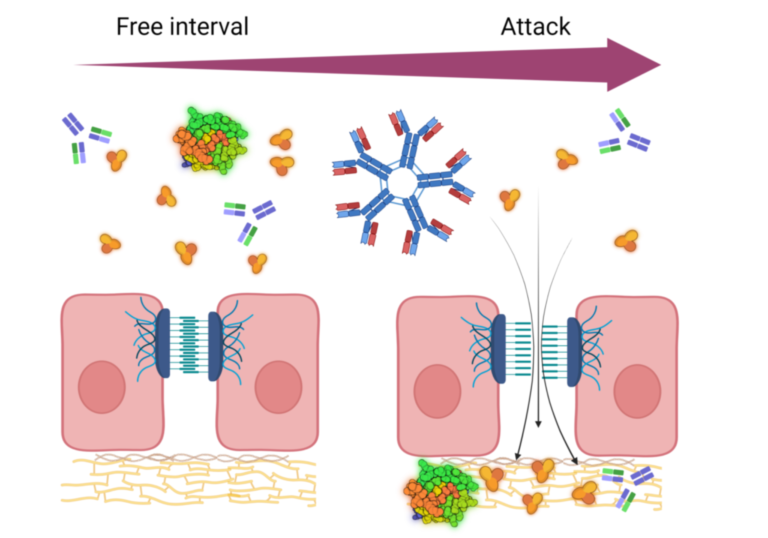What about ISCLS
What is ISCLS?
Idiopathic Systemic Capillary Leak Syndrome (ISCLS), also known as Clarkson’s syndrome, is a rare and serious medical condition characterized by recurrent episodes of sudden fluid leakage from small blood vessels (capillaries) in the body. This leads to abnormal fluid accumulation in tissues (edema) and a drastic reduction in blood volume (hypovolemia), resulting in shock, organ failure, and, in extreme cases, the risk of death.
During acute ISCLS crises, adherens complexes between endothelial cells undergo a conformational change. This allows proteins, which are normally contained within the capillaries, to pass into the extravascular space. During these attacks, proteins with a molecular weight of up to 200-300 kDa freely pass through the inter-endothelial spaces, while proteins with a higher molecular weight, such as IgM (900 kDa), apparently remain in the vascular bed.
The exact cause of ISCLS is unknown (idiopathic), and it is not associated with any visible damage to the vessels. Infections, physical stress, or other factors can trigger episodes of capillary leakage. Symptoms range from muscle pain, fatigue, and swelling to severe hypotension. The condition is extremely rare and requires early diagnosis and rapid treatment aimed at minimizing the complications of shock while reducing, where possible, the amount of infused fluids.
It is crucial that patients diagnosed with ISCLS are treated at a center specialized in managing this medical condition. To date, the only treatment agreed upon in medical literature is preventive, aimed at avoiding relapses, and involves the periodic infusion of polyvalent human immunoglobulins.
